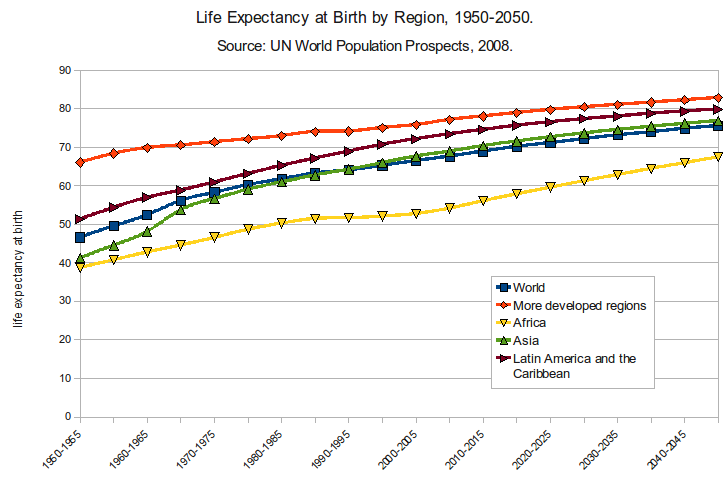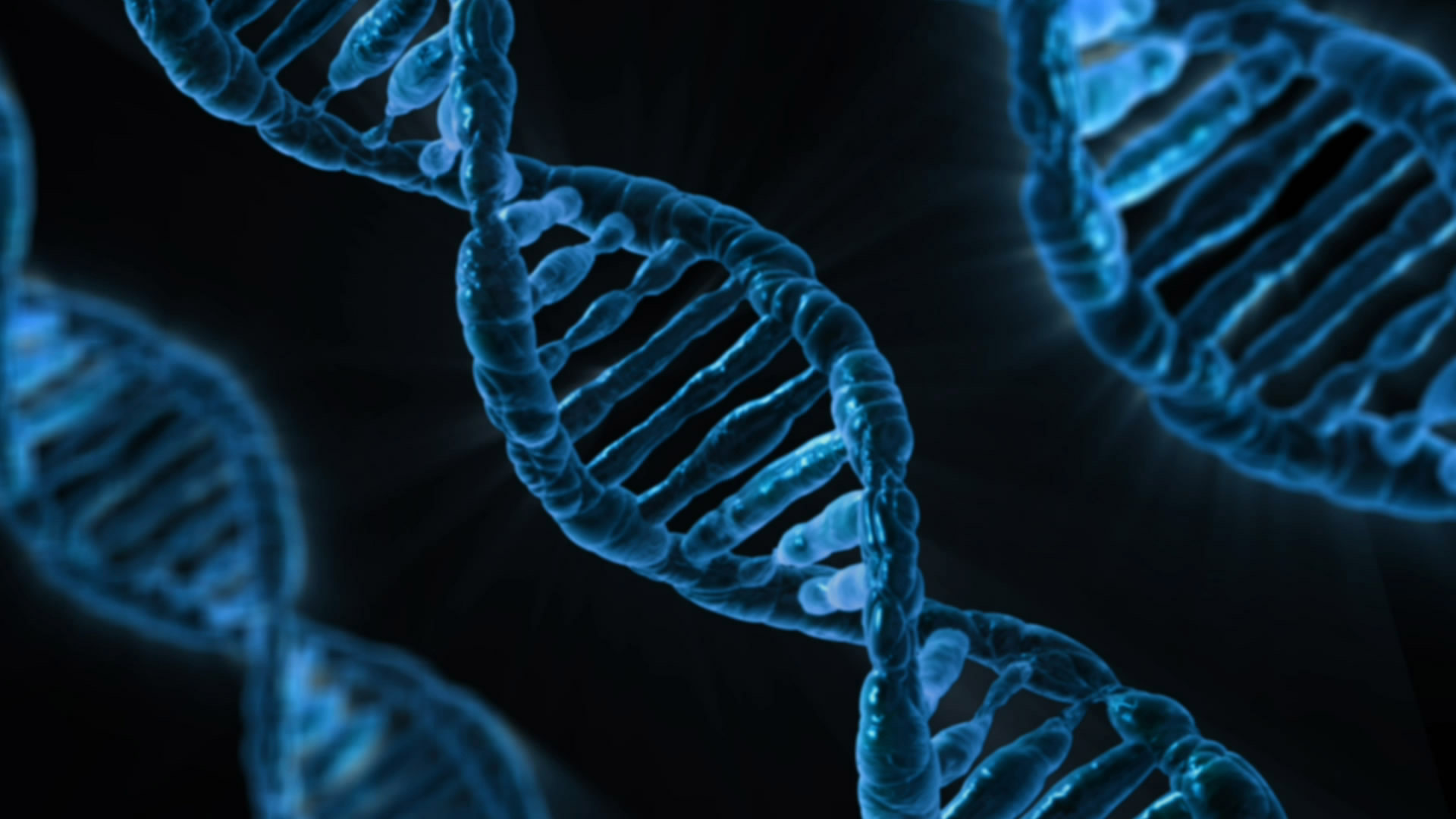
Increasing life expectancies of the world. (Source: Wikimedia Commons)
Lifestyle and luck aside, the average human in the twenty-first century has a life expectancy of 80 years. For many people this may seem like a long time, but what about people who live to 100 years old or even older? Is there some secret to longevity they are not telling us?
The small fraction of the population who live to the age of 100 or more are called centenarians. An even smaller fraction of people, who live to be significantly older than 100 are supercentenarians. If you ask them what it takes to live a long life, you will get a wide range of answers: “morning walks and chocolate”, “tell the truth”, “raw eggs and no husband.” Although these answers cannot be directly correlated with longevity, scientists are looking for answers in our DNA.
It is true that a supercentenarian will have few than usual DNA variations known to increase the risk of heart disease, Alzheimer’s disease and other ailments, but researchers believe there is more to it than just luck. They suggest that there is a genetic code that actively protects against aging. This could explain why some supercentenarians are actually more healthy overall, than centenarians in the final months of their life.

DNA strands: Possibly hold the answer to longevity. (Source PublicDomainPictures)
Finding this sequence this is understandably hard since this “survival” phenotype is so rare and nonspecific. Of the billions of A’s, T’s, C’s, and G’s that make up our genetic code, it is hard to distinguish where these mutations occur and even more difficult to collect enough genotypes to confirm the theory.
Despite the odds, researchers published an article that identifies new variants in chromosomes 4 and 7 associated with extreme survival and reduced risk for diseases. The study used 2,070 individuals who were the one percentile of survival for the 1900 U.S. year and analyzed their genomes. They found that there are longevity-associated variants (LAV) and survival to extreme age at death (eSAV) variants, LAV being more common in centenarians. Although this far from confirms proof of a healthy aging gene, it a step forward in unlocking the secrets of living a long, healthy life.
-Mya Dodd
